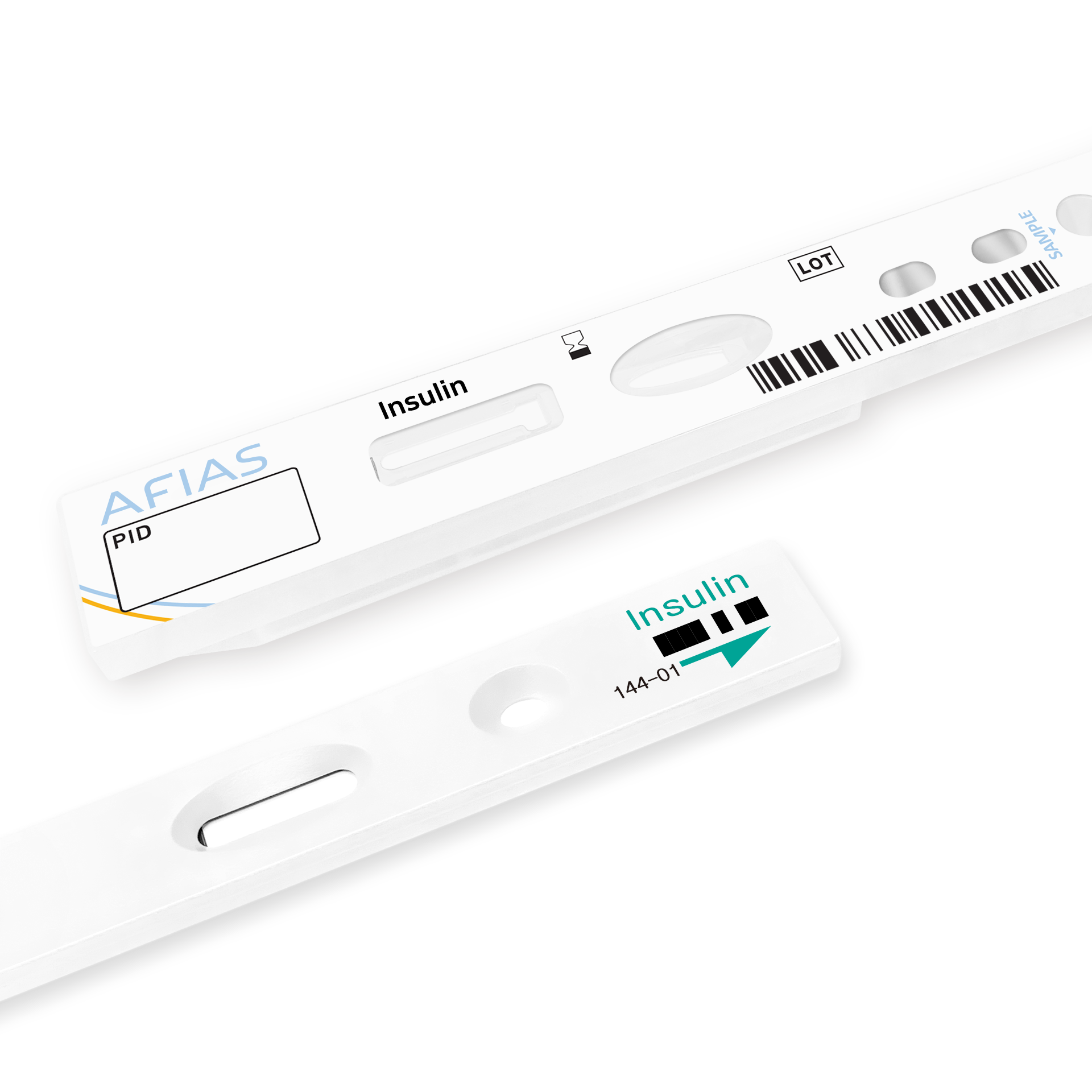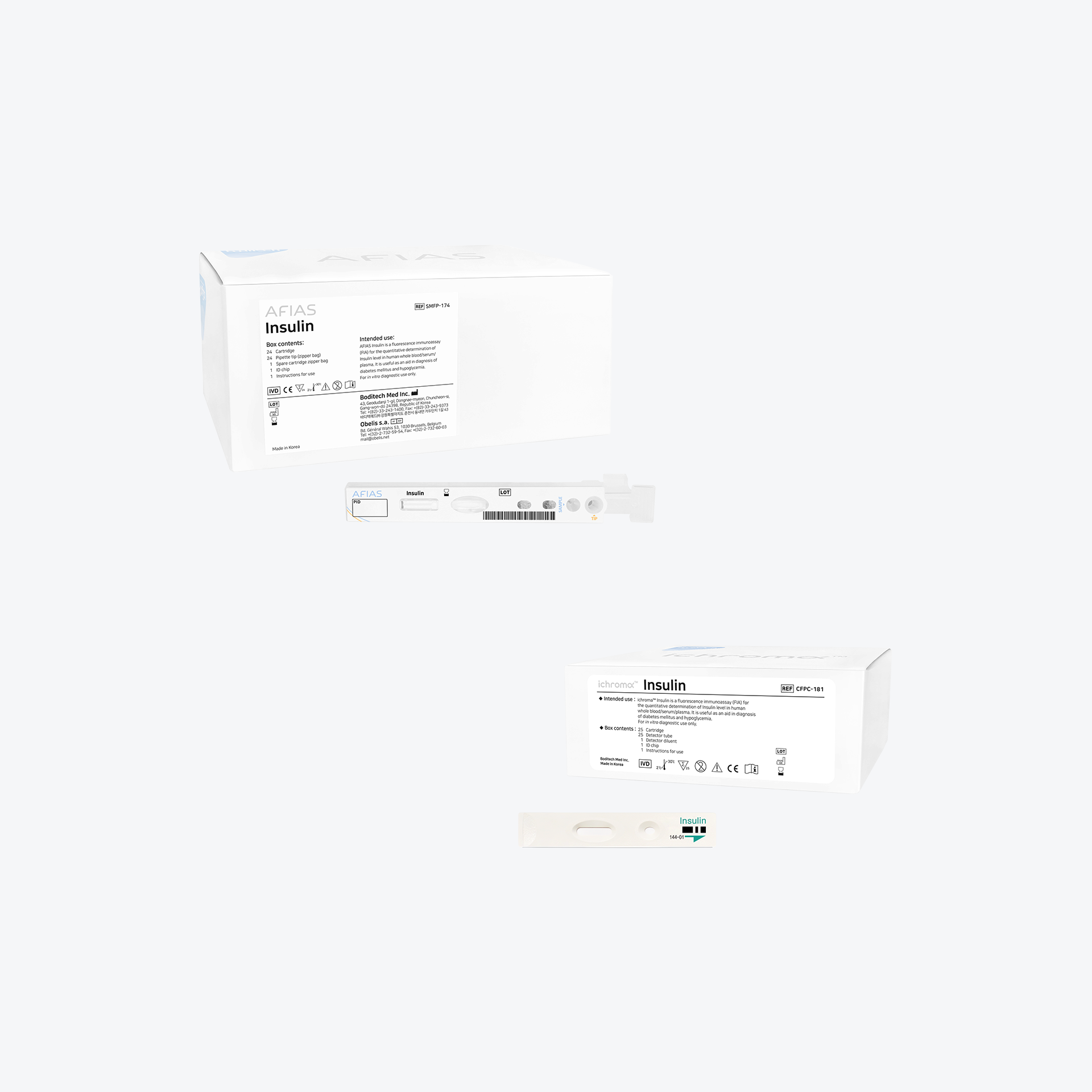Insulin
Measuring insulin level and supporting to diagnose diabetes & hypoglycemia.
Insulin is a hormone produced by the pancreas, playing a crucial role in regulating blood sugar levels. In patients with type 2 diabetes, the production or utilization of insulin can be impaired, leading to abnormal blood sugar levels. Additionally, insulin testing is important in various situations, such as monitoring gestational diabetes and assessing the state of prediabetes. Notably, evaluating the state of prediabetes helps in early identification and preventive measures for individuals at high risk of developing diabetes, which is essential in delaying or preventing the onset of type 2 diabetes.
- Diagnosis diseases
- Diabetes mellitus and hypoglycemia
Available Instruments
About Using Reagent
-
Sample Types
Whole blood, Serum, Plasma -
Reaction Time
12 mins -
Detection Range
2-300 µIU/mL -
Indication
Diabetes mellitus and hypoglycemia
In Your Medical Field
Through insulin testing, medical professionals can monitor a patient's insulin levels and, based on this, establish personalized treatment plans. This aids in effectively managing blood sugar levels and reducing the risk of complications arising from uncontrolled blood sugar levels. Insulin testing is an essential tool for controlling blood sugar in patients with type 2 diabetes, improving treatment plans, preventing complications, and for the early detection and management of individuals at risk of developing diabetes.








